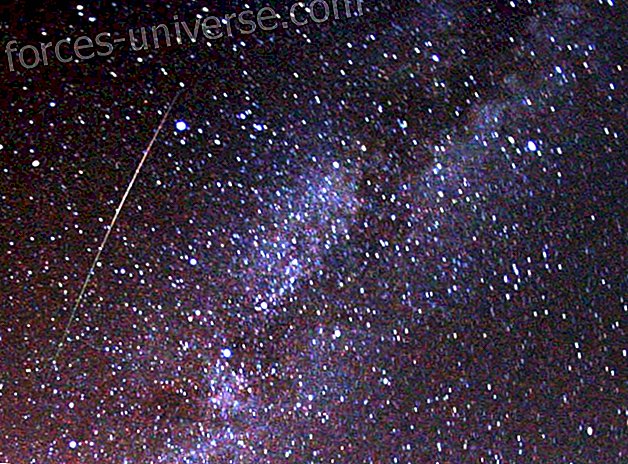Rudolf Steiner: Philosophy of Freedom. Introduction
We will present the work of Rudolf Steiner: Philosophy of Freedom.
Each week we will interpret a chapter of his work. The intention is to motivate readers to read the original work and bring new elements of reflection to those who have already read it.
Steiner points out that the reason for his work is that:
We no longer want to limit ourselves to believing; we want to know Belief demands the acceptance of truths that we cannot fully understand. But what we do not fully understand goes against the individual who wants to live all in the deepest part of his being. Only we are satisfied to know that it is not subject to any external norm, but arises from the inner life of the personality.
Nor do we want a knowledge that has been frozen forever in doctrinal rules, and kept in compendiums valid for all time. Preface to the Philosophy of Freedom
Man has to be able to experience ideas, that is, to make them part of his life. To test them to decide on their truthfulness. You cannot become a slave to any idea.
Is the sense that men have of being free only an illusion? Is it determined by need, just like in animals?
One of the purposes of this book is to justify the existence of the world of spiritual knowledge, although we do not yet have obvious experience of its existence.

Chapter 1 of Rudolf Steiner's philosophy of freedom
Rudolf Steiner writes the work Philosophy of Freedom at the end of the 19th century, when the advancement in the studies of natural science included human beings within the determinism in which animals live. Steiner is going to show that thinking makes an important difference.
Faced with the philosophies that are based on determinism and the lack of freedom of individuals, the author will affirm that although much of human performance is unconscious, and therefore determined by forces that he does not know how to control, it is also true that acts, which he does as a result of his reflection, have characteristics essentially different from unconscious acts.
Rudolf Steiner will highlight the importance of realizing that, when we observe something, we also think and that by becoming aware of our thinking we are spiritualizing. We are so immersed in multiple ideas, that we don't realize what we think. By becoming aware of our thinking, we are separating ourselves from the purely physical and biological world.
Thinking before acting and acting based on motives chosen by us is what will allow our moral development.
Theme I: Conscious Human Acting
In the subject I: The conscious human act The author asks: Is the man in his thinking and acting a spiritually free being, or is subject to the domain of an absolute necessity, in accordance with the laws of the nature? .
The question about whether a human being is free or not, if all his acts are determined by external circumstances or if he is the one who makes the decisions is a question that reaches every person who seeks the truth.
The search engine does not want dogmatic solutions that tell you what the truth is. The radical materialist currents will respond that everything is determined and the idealist currents will insist that there is always power of choice. But these kinds of answers are not what a truth researcher is looking for.
There is no discussion when it is said that the choice between alternatives is directed by a motive, that is, every choice has a motive. Here a first discussion is already presented, we can choose our motives, or they control us.
Philosopher Baruch Spinoza (1632-1677) maintained that the idea of freedom is a fantasy. It was pointed out that if a stone could think it would believe, when it fell down a cliff, that it did so by its decision and with its effort. I could not understand that there was an external force that drove it to fall.
Rudolf Steiner explains that in this argument is the aspect that denies it. The stone could not know that an external force drove it to fall, the human being can be aware of the actions that influence him.
Here we already get a difference between an unconscious action like that of the drunk who believes that the things he says he does with complete freedom and that of a scientist who seeks the answer to a problem. The scientist knows that his search makes sense. He knows he has a reason.
If all human beings had the same character ...
Steiner explains that if the differences between humans were insignificant, common conclusions could be reached for everyone . This logic is true for animals, since when a scientist studies a horse he can affirm what life is like for all horses. The differences between how several horses respond to defined circumstances is very small.

This is not the case among human beings, since the characters vary radically between one person and another.
The character has a great relationship with values and ethical development. A man will have few filters for outside influences and will respond to them without reflection. Another will observe it and decide if it becomes the reason for its action or will discard it. In the second there is an internal control.
This argument, which is a breakthrough in the theory of the freedom of human beings, is interpreted by some theorists such as Eduard von Hartmann (1842-1926) as an illusion .
He accepts that two people can act very differently, but this is because each one has a different character. If one of them has a high character development, he cannot act against his level of development . For Hartman, the character of a man determines it. In this sense Hartman affirms that neither of them (neither the one with low moral development, nor the one with high moral development) are free. Both act according to their levels of development.
Rudolf Steiner points out that Hartmann does not distinguish between the different acts of man with high moral development. Some acts will be done unconsciously and others will be done after reflection. The first to the second are not the same. This person will not know why he acted when he did not reflect, instead he will understand much better the acts he performed after reflecting.
What does it mean to be aware of the reasons for your actions?
What does it mean to be aware of the reasons for your actions? This issue has not been taken into account, because acting is supposed to be one thing and think another. The relationship between acting and thinking has not been sufficiently studied.
It is necessary to differentiate if the motives are conscious or unconscious.
The first thing to differentiate is whether the motives are conscious or unconscious . It is not the same to act without knowing the cause, than to act after having reflected on whether I should give strength to a motive or if I should rule it out.
How many of our acts are impulsive and how many are reflected?
What is the Liberty?
One of the problems in the discussion about whether we act freely or not is to clarify what we are talking about. In other words, what is freedom?
Hegel says that thought causes the soul to rise to the Spirit. This is what, Rudolf Steiner tells us, freedom.
Everything we do instinctively, without thinking, is determined by external causes. In this case, something strange to us makes us decide. Instead, when we think, we give a different characteristic to our actions.

It's not that thinking alone makes us human. It is that our emotions are transformed with our reflection. Steiner clarifies that when an action is conscious it does not arise from the heart. The heart accepts it because it comes from reflection.
If there is true compassion, it is because it has been the result of reflection.
It is the case of compassion. If there is true compassion, it is because it has been the result of reflection. In that case, the heart accepts it. If you have not gone through the reflection, it would be just an instinct. It would not have moral value. For this reason, thought is the father of feeling. We are really referring to the development of sensitivity. Artistic sensitivity, social sensitivity. That sensitivity that makes the lover recognize in the loved one those qualities that no one else sees.
The conclusion of this part of the first chapter of the Philosophy of Freedom is that freedom is related to the ability to think. Not only with the ability, but with its real use to reflect on the reasons for acting.
The conclusion of this part of the first chapter of the Philosophy of Freedom is that freedom is related to the ability to think to reflect on the reasons to act and develop our sensitivity.

References
Rudolf Steiner Philosophy of Freedom. Chapter I, topic 1. Conscious human action. https://wn.rsarchive.org/Books/GA004/English/filosc01.html
José Contreras., editor and translator in the big family of hermandadblanca.org
Link suggestions
https://hermandadblanca.org/cual-es-tu-mision-en-la-vida-roberto-perez/
The chakras and their properties.
Meaning of combinations of numbers that appear frequently according to angels and angelic numbers






